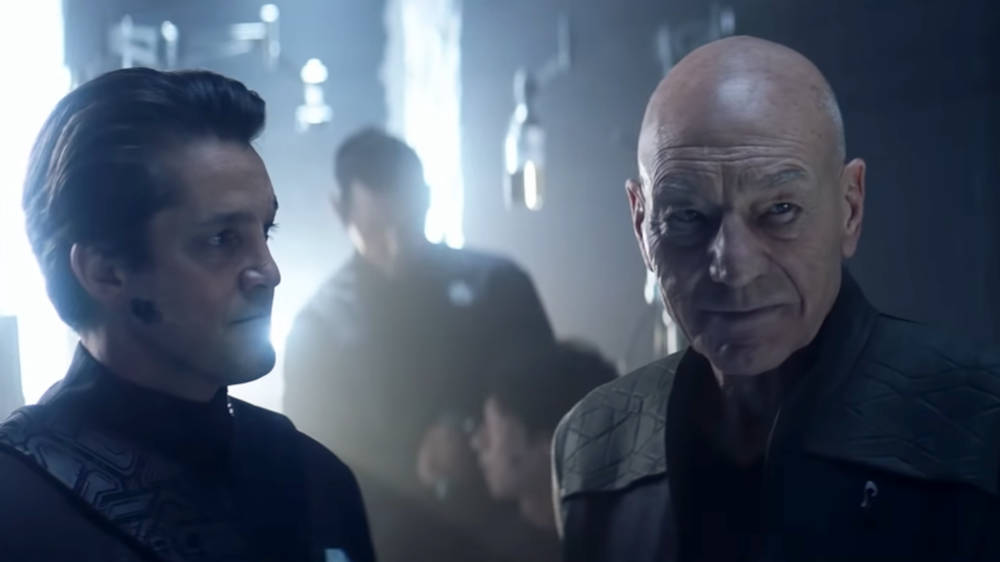Article Content
Sobering and trivial reflections on a 25th anniversary

Every five years in March, I seem to write this same article reflecting on the history of Jammer’s Reviews and/or the unstoppable passage of time. This marks the fifth of those five-year articles. That I’ve done this website for 25 years and am still doing it is something worth noting. I will continue to take note every five years (as long as I and my website are still here), because they provide markers for myself even if no one else cares. I looked back at some of those previous anniversary articles and grinned while taking the trip down memory lane.
But it feels different this time, because as I check in today, the COVID-19 crisis continues to escalate in the United States and across the world. Had I written this even three weeks ago as I’d originally planned, I might not have mentioned the coronavirus at all. Yes, it was definitely already happening and was a serious concern, but it was still a slow march seemingly far away, something to keep an eye on but not all-consuming. Things have escalated quickly. (Read more…)
‘Picard’s’ penultimate episode is mediocre setup

It’s hard to render a proper verdict upon "Et in Arcadia Ego, Part 1" when "Part 2" is still waiting in the wings, but based on what I see here, my hopes are fading fast.
The thing about building out a single plot over 10 episodes is that you are really putting your eggs in one basket — all but demanding the audience to expect a well-thought-out, compelling through-line, as opposed to a half-baked movie plot that’s simply longer. (Many frequently cite Lost as the reason why we are where we are today with TV structures like this season of Picard. I disagree. Netflix, with its endless supply of made-to-binge shows, is why we are here. Lost was an episodic character anthology series just as much as it was a serialized arc show, and there were tons of plots on that show, not a single plot being told over 10 — or in its case, up to 24 — installments. I wish more shows had the varied structure of Lost.)
‘Broken Pieces’ are well assembled

"Broken Pieces" is an effective if imperfect Answers Episode that finally puts pieces together and confirms suspicions that have been building across the previous seven shows, setting us up for the final two installments, which will presumably close out the season arc. This episode features a lot of dialogue and explaining, much of it in the TNG tradition of situational analysis, and I appreciated the way it had characters discussing in detail what they now understand, for their and our benefit.
After "Stardust City Rag" appeared at the time to be a potential season-killing episode, Picard has come back with three winners in a row and now heads into the home stretch with the ability to go out with a successful season, provided they can effectively end this thing.
‘Nepenthe’ wonderfully delivers all the feels

"Nepenthe" is this series at its most relaxed and natural, and it delivers all the feels for what is perhaps the best Picard outing yet. It’s refreshing to see the writers and producers of this show are capable of using the serialized Trek format to tell self-contained character stories that don’t feel like info-dumps of plot exposition.
In the past I’ve focused a lot on whether or not episodes of this series have moved the plot forward. "Nepenthe" is proof that you don’t need to move the plot forward hardly at all if you instead allow the characters to breathe and be the people they are, and reflect on their situations with thoughtfulness and self-awareness. I suspect TNG fans will find, as I did, that this feels the most like what we probably felt a decades-later TNG sequel should feel like. It does this not just by bringing back Riker and Troi in major guest appearances (although, to be clear, that certainly goes a long way), but by providing dialogue and reflection that considers the past, the present, and the choices that have been made.
A defense for changing our clocks twice a year

Sunrise in the winter, or what 8:30 a.m. will look like in December where I live if we adopt Daylight Saving Time year-round.
There seems to be gathering steam to get rid of the twice-annual changing of our clocks. People are apparently so fed up with “springing forward” and “falling back,” that the majority of Americans now support getting rid of the time change altogether, in favor of either year-round Daylight Saving Time (the seemingly more popular choice) or Standard Time. The most common refrain reported in the news stories I see about this is, “I don’t care which time they pick, I just want to stop changing my clocks.”
I’ve written about this before, more than a decade ago (at a time when I apparently was positioning this blog’s tone to be some kind of alter-ego irreverent jerk version of myself). I’m not tired of changing my clocks. I am tired of the twice-annual griping about this minor inconvenience. Every time Daylight Saving Time begins or ends, there’s an endless torrent of stories written about how it’s bad, and awful, and inconvenient, and unsafe, and blah blah blah. (Read more…)
‘Picard’ in peak form when ‘Impossible Box’ opens

What a difference a week makes.
After the dour and trope-ridden experience that was “Stardust City Rag” last week, “The Impossible Box” is nothing short of a series turnaround. Here is a story with purpose; characters with motivation; a script with curiosity and nuance; action with genuine danger and suspense; cinematic sequences of evocative atmosphere; moments of humanity and emotion; and mysteries and puzzles that are actually interesting. Oh, and a thematic point about the salvation of ex-Borg souls that speaks directly to Picard. Welcome back, Star Trek.
Speaking to the overarching tendencies of this series, it’s perhaps not the most reassuring sign that I kept dreading all the goodwill was going to suddenly evaporate in a final scene featuring some dopey twist ending (I was prepared to go on a rampage over, say, Hugh suddenly betraying Picard or stabbing Soji or some nonsense), but I’m happy to report that such a thing never happens. This story plays straight and gimmick-free to the end and is all the better for it.
Latest ‘Picard’ outing is Star Trek in name only

I am easily bored by the "What is Star Trek?" debate. This question has been asked for decades and it comes up with every new series, and now every new episode. It is a cliche and I avoid it like the plague.
That being said, "Stardust City Rag" is all wrong. This is not Star Trek.
The unrelenting cynicism; the brutal torture/gore; the utter lack of imagination; the Shocking Plot Reveals that seem to be motivated by the running time approaching the end of the episode more than character insight or smart writing; the overly coyly hidden secrets and agendas; the, yes, grimdark (another cliche term I hate) dystopian worldview — it all cumulatively takes its toll in "Stardust City Rag." This is … well, it’s just not very fun.
Picard faces his past mistakes in ‘Absolute Candor’

If you take nothing else away from "Absolute Candor," know that Jean-Luc Picard made a mistake when resigning in protest and taking himself out of the game, and people are now telling him that in no uncertain terms.
This episode provides a reckoning for the title character in a way that was certainly contemplated in the opening three episodes but comes to the forefront here in a way that can’t be ignored. When Starfleet chose not to continue the evacuation and relocation of the Romulans, Picard quit, full stop. His error — if he was truly living by his principles that Starfleet abandoned — was that he headed off into retirement and didn’t look back, instead of continuing to try to make some sort of difference.
‘Picard’ finally ends the beginning

“The End Is the Beginning” has a title that would show a striking amount of self-awareness if it were actually “The End of the Beginning,” which is more like what it plays like. Three episodes for Picard to secure a ship and a skeleton crew for whatever mission ensues in tracking down Soji Asha and/or Bruce Maddox has been plenty enough. Let’s make it so already, shall we?
Picard, more so than Discovery, has shown that it’s going to be completely serialized, rather than taking a hybrid approach that uses both serialization and episodic story beats. This is somewhat more difficult for me, because reviewing chapters of a book makes it hard to know if what I’m critiquing is adequately informed by what might be just around the corner. (Case in point: My disbelief in Picard being returned to his home after the episode on the rooftop, which was later explained by the ensuing conspiracy/cover-up.) Am I being entertained and absorbed by the story? Yes, although this is taking longer than perhaps I would like.
‘Picard’ lays more groundwork with ‘Maps and Legends’

"Maps and Legends" is an episode that further sets up the premise of this season and offers some good context, fleshing things out that “Remembrance” had me wondering about and giving them more shape. It does this leisurely and methodically, which feels like a step in the right direction after the many narrative gaps and shortcuts seen in Discovery. That being said, this episode often feels like expositional piece-moving ahead of the story that still awaits us.
The Peak TV cliche "It’s a 10-hour movie" has been applied to this series in Patrick Stewart’s press statements, and by that calculation, the first three episodes would be Act One. We’re still just getting started here, and by the end of "Maps and Legends" we’re still just getting started. While "Remembrance" gave us the nostalgic feels, this seems like an episode that’s easing us into the world of Picard that will be. Gradually.
